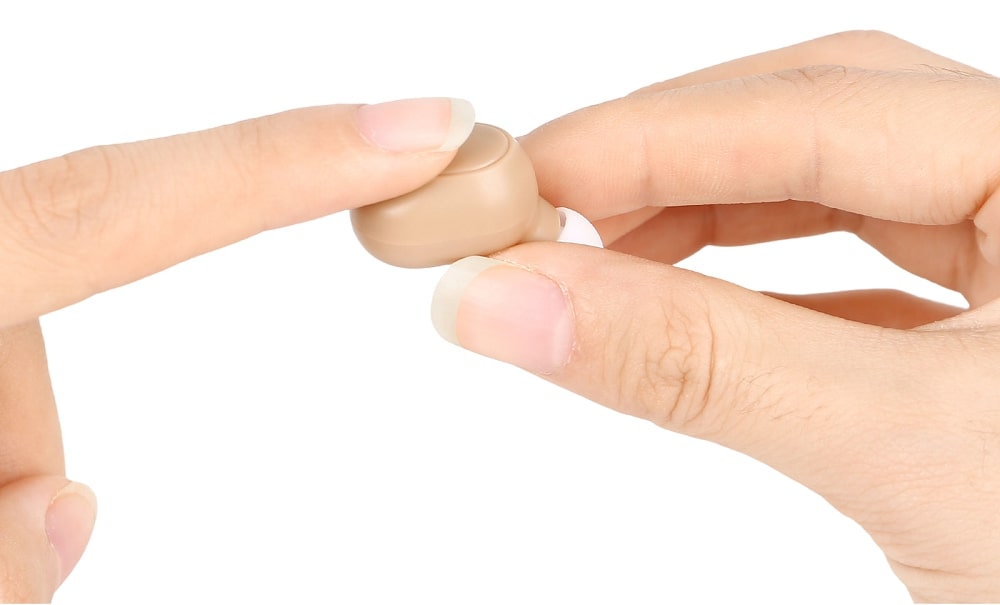Solving the Riddle: Are Hearing Aids Eligible for the FSA?
Are you having trouble hearing and thinking about getting hearing aids? Or maybe you want to upgrade the ones you already have? If you're like most people, you might worry about how much it will cost. But there's some good news! When it comes to handling these costs, learning about hearing aids and how they work with Flexible Spending Accounts (FSAs) can be a big help.
What is an FSA, though? And can hearing aids be used with an FSA? Read on as we go deeper into this topic and give you useful information to help you find your way through this financial maze.
How to Use a Flexible Spending Account (FSA)
A Flexible Spending Account, or FSA, is a type of account that workers get from their employers to pay for health care costs. It's a great way to keep track of medical costs because you can put money in before taxes and use it for qualified health-related bills.
Can the FSA cover hearing aids?
Yes, is the short answer. The Internal Revenue Service (IRS) says that hearing aids are a medical cost that can be paid for with FSAs. This means you can use FSA money to pay for a hearing aid and any other tools or repairs you might need. It's a very helpful rule that can make it a lot easier on people's budgets to take care of their hearing health.
What can I really do with my FSA?
Now that we know that hearing aids are qualified for the FSA, let's look at what this means in more detail. Your FSA can be used not only for the hearing aid itself, but also for important parts and services that go along with it. These things are:
Batteries are important for your hearing aid to work, and you can update them with your FSA.
Maintenance and repairs: Your hearing aid's regular maintenance and repairs are qualifying costs.
Molds for your ears: If your hearing aid needs special ear molds, these are also covered.
Hearing exams and tests: Getting a hearing aid means getting professional exams and tests, which are also covered by the FSA.
Maximizing Your FSA Benefits
The first step is to know that hearing aids can be paid for with an FSA. The next step is to learn how to get the most out of these perks. Here are some ideas:
Plan ahead: If you or a family member will need a hearing aid in the next year, think about increasing your FSA payment when your company has open enrollment. This will give you more money before taxes that you can use if you need to.
Keep All Receipts: Make sure you keep all receipts as proof of the money you spent on your hearing. To get money back from an FSA, you need to show proof, so having these ready will make the process go more smoothly.
Get familiar with the "Use It or Lose It" Rule: It's important to keep in mind that most FSAs follow the "use it or lose it" rule. Most of the time, any money you don't use during the plan year will be lost, so make sure to plan your spending carefully.
Consult a professional. If you don't know what your FSA can cover or how to handle your account, you might want to talk to a tax expert or your HR department. They can give you advice that is right for you and your case.
Conclusion
It can be hard to figure out how to pay for health care, but learning how to use tools like FSAs to offset these costs is a big step in the right direction. Yes, hearing aids can be paid for with an FSA, which makes better hearing health more affordable.
Knowing that your FSA can cover these costs can give you a lot of peace of mind, whether you're going to buy your first hearing aid or are looking at costs for maintenance and batteries. But remember to plan ahead, keep track of your spending, and know the rules of your FSA to get the most out of it.
Hearing aids have come a long way in a short amount of time, giving people a lot of choices. For many people, these devices have changed their lives. But for some people, the cost of hearing aids can be too much, and this is where FSAs can be very helpful. Your FSA can pay for a wide range of costs connected to hearing aids, making these important devices more affordable.
Even though this piece talks a lot about FSAs, it's important to note that there are other ways to get financial help, such as Health Savings Accounts (HSAs), insurance, grants, and non-profit organizations that help pay for hearing aids. Always explore all available choices to ensure you're maximizing potential assistance.
But one thing is clear: if you have an FSA, it will be much easier to get hearing aids or keep them in good shape. This means that better hearing and, by extension, a higher quality of life are not too far away.
In the end, it doesn't have to be hard to understand how FSAs and hearing aids work together. If you know how an FSA can help you and how flexible it can be, it will be easier to take care of your hearing health. Buying a hearing aid is a big choice, but with the extra money from an FSA, it's one that can be made with confidence.
You can get hearing aids through your FSA, which makes it easier than ever to explore the world of sound. So, make the most of this chance and move forward with better hearing and all the beautiful sounds that come with it.
Are you having trouble hearing and thinking about getting hearing aids? Or maybe you want to upgrade the ones you already have? If you're like most people, you might worry about how much it will cost. But there's some good news! When it comes to handling these costs, learning about hearing aids and how they work with Flexible Spending Accounts (FSAs) can be a big help.
What is an FSA, though? And can hearing aids be used with an FSA? Read on as we go deeper into this topic and give you useful information to help you find your way through this financial maze.
How to Use a Flexible Spending Account (FSA)
A Flexible Spending Account, or FSA, is a type of account that workers get from their employers to pay for health care costs. It's a great way to keep track of medical costs because you can put money in before taxes and use it for qualified health-related bills.
Can the FSA cover hearing aids?
Yes, is the short answer. The Internal Revenue Service (IRS) says that hearing aids are a medical cost that can be paid for with FSAs. This means you can use FSA money to pay for a hearing aid and any other tools or repairs you might need. It's a very helpful rule that can make it a lot easier on people's budgets to take care of their hearing health.
What can I really do with my FSA?
Now that we know that hearing aids are qualified for the FSA, let's look at what this means in more detail. Your FSA can be used not only for the hearing aid itself, but also for important parts and services that go along with it. These things are:
Batteries are important for your hearing aid to work, and you can update them with your FSA.
Maintenance and repairs: Your hearing aid's regular maintenance and repairs are qualifying costs.
Molds for your ears: If your hearing aid needs special ear molds, these are also covered.
Hearing exams and tests: Getting a hearing aid means getting professional exams and tests, which are also covered by the FSA.
Maximizing Your FSA Benefits
The first step is to know that hearing aids can be paid for with an FSA. The next step is to learn how to get the most out of these perks. Here are some ideas:
Plan ahead: If you or a family member will need a hearing aid in the next year, think about increasing your FSA payment when your company has open enrollment. This will give you more money before taxes that you can use if you need to.
Keep All Receipts: Make sure you keep all receipts as proof of the money you spent on your hearing. To get money back from an FSA, you need to show proof, so having these ready will make the process go more smoothly.
Get familiar with the "Use It or Lose It" Rule: It's important to keep in mind that most FSAs follow the "use it or lose it" rule. Most of the time, any money you don't use during the plan year will be lost, so make sure to plan your spending carefully.
Consult a professional. If you don't know what your FSA can cover or how to handle your account, you might want to talk to a tax expert or your HR department. They can give you advice that is right for you and your case.
Conclusion
It can be hard to figure out how to pay for health care, but learning how to use tools like FSAs to offset these costs is a big step in the right direction. Yes, hearing aids can be paid for with an FSA, which makes better hearing health more affordable.
Knowing that your FSA can cover these costs can give you a lot of peace of mind, whether you're going to buy your first hearing aid or are looking at costs for maintenance and batteries. But remember to plan ahead, keep track of your spending, and know the rules of your FSA to get the most out of it.
Hearing aids have come a long way in a short amount of time, giving people a lot of choices. For many people, these devices have changed their lives. But for some people, the cost of hearing aids can be too much, and this is where FSAs can be very helpful. Your FSA can pay for a wide range of costs connected to hearing aids, making these important devices more affordable.
Even though this piece talks a lot about FSAs, it's important to note that there are other ways to get financial help, such as Health Savings Accounts (HSAs), insurance, grants, and non-profit organizations that help pay for hearing aids. Always explore all available choices to ensure you're maximizing potential assistance.
But one thing is clear: if you have an FSA, it will be much easier to get hearing aids or keep them in good shape. This means that better hearing and, by extension, a higher quality of life are not too far away.
In the end, it doesn't have to be hard to understand how FSAs and hearing aids work together. If you know how an FSA can help you and how flexible it can be, it will be easier to take care of your hearing health. Buying a hearing aid is a big choice, but with the extra money from an FSA, it's one that can be made with confidence.
You can get hearing aids through your FSA, which makes it easier than ever to explore the world of sound. So, make the most of this chance and move forward with better hearing and all the beautiful sounds that come with it.


